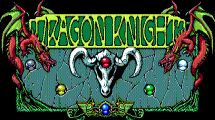Perhaps you've heard of me?

I think it is good and necessary to read books in english, but I would never start with Harry Potter or something like that. I really hate it to it to look up every second word in the dict. It destroys the feeling and you can't follow the plot. The last book I've read in english was "Thirteen Reasons Why". A book about a girl who commited suicide and left some cassette tapes, talking about the 13 people who destroyed her life. The protagonist is one of those people. It's really a great book and everybody should have read it once in his life! - At the moment I'm reading " The Kite Runner" a very difficult book to read. The vocab is very hard and you need knowledge about the background in afghanistan. My english teacher forced me to read it, what a lucky fellow I am. /:
.
.
.

 Kontrollzentrum
Kontrollzentrum






 Zitieren
Zitieren












